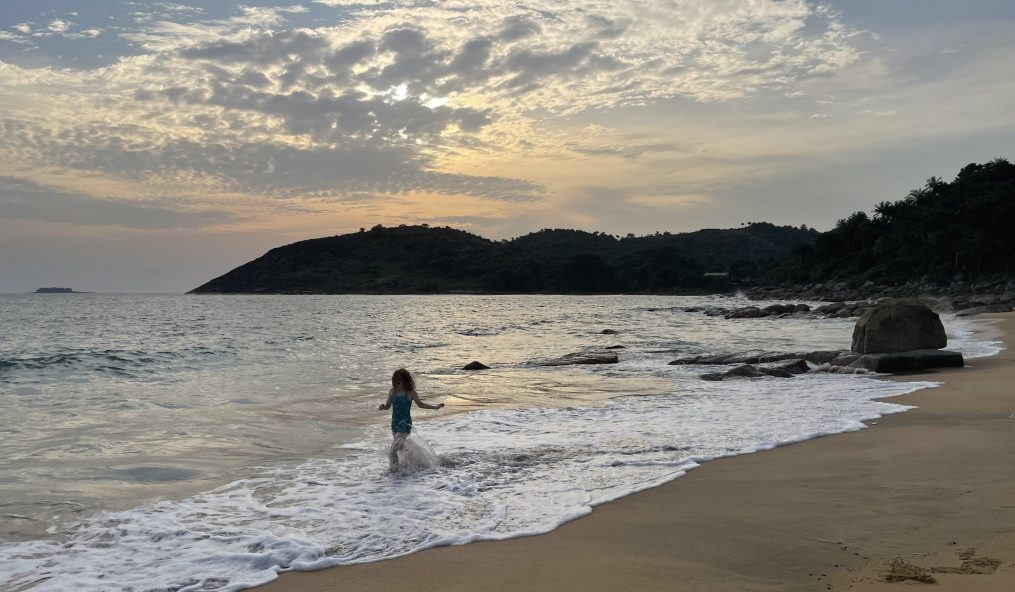
This may be one of the greatest understatements of all time, but Spring Break 2020 was not as we had envisioned. I had had a truly fantastic trip arranged for C and I. Driving through a new country. Adventures. Mother and daughter bonding time. I know, I know. No one planned to spend their spring largely isolating from the world during a pandemic. If you have read my blog though you know that I am big into travel. I take just about every opportunity to travel somewhere. It’s part of my identity and my daughter C is my travel buddy. I expect some might find my moaning about missing out on yet another trip to be tone-deaf, but each of us has at least one thing that we miss doing right now that makes this situation even harder. My inability to travel is one of mine.
Our last trip – a mini holiday to Johannesburg – was meant to give us a sense of normalcy, to let us do the types of things many Americans can do, but we are unable to do in Malawi. However, it was already well into the beginning of COVID-19 abnormalcy. Although at the time of the trip (Feb 29-Mar 3), there were only a handful of cases on the African continent, there were already 2,900 deaths, including the first in the U.S. There were temperature checks at immigration and a few people wearing masks. And two days after our return, South Africa registered its first case. Within weeks, as South Africa prepared for its 21-day lockdown that would begin March 27, the writing on the wall was clear: we would have no Spring Break outside of Malawi.
These musings though are not just lamentations of travel unrealized, but rather a compilation of thoughts about us riding out COVID-19 in Malawi.
COVID-19 Makes its Malawi Debut

It would not be until April 2 that Malawi would confirm its first cases of coronavirus, the 50th African country to do so (out of 54), and seemingly one of the last countries in the world. Though truth be told, there had not been testing available before then, thus there was a quiet assumption it was already here. Although C’s school had already prepared for social distancing as had the Embassy, and the President of Malawi had declared all schools in the country closed from March 23, there did not seem any immediate change to the rhythm of the local people. The colorful, crowded, chaotic markets continued. Mini-buses — though supposedly with fewer passengers squeezed inside, per the President’s guidelines — continued to trawl the city streets. Stores remained open, though with hand cleaning stations outside.

But following the first death on April 7, the undercurrents seemed to shift. I began to see Malawians wearing masks while driving their cars or in the supermarket. Supermarkets and the TNM (Telecommunications Malawi) store set up those floor stickers to encourage social distancing while in the store. I began receiving text messages with helpful suggestions to counter the spread of the virus. Companies took out full-page coronations-related ads in the newspapers. But there was a sense that it was the more well-to-do urban Malawians that were getting the messages first and foremost. They are the ones driving cars, shopping at Chipiku Plus, and topping up their phone data plans at the rather upscale TNM shop at Umodzi Park.
Then on April 14, the President announced a 21-day lockdown to begin at 11:59 PM on April 18.
Lockdowns Are Not Created Equal
Social distancing, self-quarantines, and lockdowns are just not the same across the world or across socio-economic lines. In Malawi, one of the poorest countries in the world, there are no Whole Foods, Wegmans, or Trader Joe’s (upmarket U.S. food stores). There is no Amazon delivery bringing us all manner of goodies. Pizza delivery drivers are not essential workers here as there is no pizza delivery. Until a few weeks ago when a few bespoke expat-oriented restaurants began to offer limited delivery, there was none in Lilongwe. Though now almost all restaurants are closed. There are no drive-thrus (well, there is one, at one of two KFCs in the country). Supermarkets do not deliver. While we can walk around, there are no sidewalks, and at night almost no streetlights (and probably 50% or more of the lights do not work). There are no parks or walking trails where we might enjoy a stroll or bike ride. For awhile the parents of C’s best friends took her with them for bike riding at the BICC (Bingu International Convention Center). There is a large open area in front of the convention center and hotel, and terraced roads linked also by stairs going up a hillside. But last week, security personnel turned them and others away, declaring the only open area of its kind in the city closed to persons seeking recreation.

This is not a woe-is-me tale, but a reminder to folks living in developed countries with many amenities available to them, that this pandemic period is much harder on others. And I am not talking about myself. Although I do feel some envy for some of the creature comforts and conveniences I see and hear about from others at home, I am better off than 90% (or more) of Malawians, many of whom live hand-to-mouth, making their small income from daily informal work.

Following the announcement of a 21-day lockdown, small-scale traders in the cities of Blantyre and Mzuzu held protests, which spread to other areas such as Kasungu and the capital Lilongwe. Many of the protestors are concerned that unable to engage in their livelihoods they are more likely to die of starvation than of the coronavirus. Contrast this with protests in the U.S. which largely seem to be a question of civil liberties and larger economic concerns vice life and death. A Malawian human rights organization took the government to court, claiming the lockdown implementation has not been aboveboard and does not include enough consideration of and protections for the poor, and obtained a seven-day injunction. Therefore the lockdown is currently on hold. Political or not, the virus nonetheless has been politicized; the erratic political environment coupled with the potential health crisis leaves even more uncertainty about the way forward.
Easter Under COVID-19

Originally, C and I were to be away on the holiday, so I had planned to celebrate the Sunday before. With no vacation though, I considered moving it to the actual day, but C was just too excited. And after two weeks of homeschooling by a horrible new teacher with zero patience (yes, me), I wanted to do something that would make her smile. Well, first I forced her to clean up the living room (I asked my nanny/housekeeper, who also happens to be seven months pregnant, to just stay at home during this time — paid of course), and then the morning of I set up her Easter basket, full of locally-sourced chocolate (the selection is much better than you might think) and some luckily-ordered-before-Embassy-mail-ceased surprises (our diplomatic mail arrives on planes, there are now almost no more planes). I also hid 34 plastic eggs in the living room and entryway for our annual egg hunt.
As the week wore on I questioned my decision. I grew melancholy as the Easter weekend, and the day we would have flown out, approached. But a very clever colleague came up with a plan. She reached out to all staff with children to see if they might be interested in a visit by the Easter Bunny on Sunday morning. Then she dressed up in the Embassy Easter Bunny costume and a partner drove her around from house to house. Once at our house C and the Easter Bunny practiced social distancing, waving discretely to each from at least two meters away. Then the Easter Bunny poured some plastic eggs full of candy on the lawn and with a final wave, backed away.
Introverts Are Hermits and Other Annoying COVID-19 Falsehoods
<Heavy sigh> I cannot begin to tell you how much it has driven me crazy to see all the memes and posts stating that introverts have been preparing for the self-isolation and social distancing of this pandemic all their lives. Introverts are not anti-social misanthropes. Introverts recharge their energy when alone, while extroverts pull energy from being with other people. Sure, I generally prefer individual pursuits like reading, writing, solo exercise, solo travel, but that does not mean I never want to be around other people. In fact, traveling on my own often forces me to strike up conversations with strangers far more than if I were part of a group. I do like people, just usually in smaller doses. I have discovered that working from home is not my cup of tea. That does not mean an open plan office with lots of chatter is for me either, but I miss going to the office. I miss the satisfaction of face to face interaction with my coworkers. I woke up one day last week and felt an immediate desire to crawl right back into bed. Then a feeling of déjà-vu came hurtling toward me from the deep recesses of my brain, a flashback to when I was in Singapore during SARS. I did not thrive during that time and I am not thriving now.

I am learning new skills and hobbies, but not because of one of the many overly ambitious blog posts told me to do so in their Top Ten Best Ways to Make it Through Quarantine. Want to know what I am learning? How to juggle homeschooling, housework, and working during a pandemic, dealing with insomnia, and providing American citizen services to our community and private Americans living in Malawi. I cannot say I am hitting the ball out of the park on any of it. Describing my homeschooling skills as mediocre is probably overselling it, but hey, these are new skills, it takes practice, right?
This is a difficult time for everyone, I know. How you cope is relative. I try to see the bright side of things, such as the Tostitos I ordered by Embassy mail are unable to get here and thus I am not stress-eating them and my daughter’s school shoes will make it through the school year after all. I can also wear jeans and a t-shirt every day, which is my happy place for clothes, or if we are being really real, pajama pants and a t-shirt. Basically, I try to maintain my sense of humor. And with travel on indefinite hold right now, I am especially relying on it.
Stay safe.
